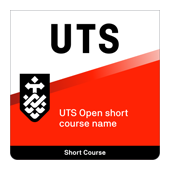Key benefits of this course
By the completion of this course you should:
- Understand how the NSW strategic planning and development assessment systems operate
- Understand the significance of the legal frameworks on which planning is based
- Be equipped to analyse planning instruments such Local Environmental Plans (LEP) and State Environmental Planning (SEP) Policies, and the accompanying development control plans
- Understand how development applications (DAs) are processed, including legal requirements, determining key issues and impacts, stakeholder views, weighting of issues and applying conditions of consent
- Be aware of key examples and worked case studies, considering assessment matters, conflict resolution and negotiation skills
- Understand the sources of conflict, approaches for dispute resolution; and the role of the Land and Environment Court (including procedures, planning principles and case law).
Digital badge and certificate

A digital badge and certificate will be awarded following the successful completion of any necessary tasks or assessments to demonstrate acquired learning of the short course or for meeting attendance and/or participation requirements.
Learn more about UTS Open digital badges.
Course outline
Designed for planning professionals, such as engineers, building surveyors, planners and environmental officers who work with urban planners as well as support staff and those relatively new to the field of development assessment, this course outlines the basic building blocks of development assessment process and the planning principles the underpin good practice.
Designed to complement experience at work and on-the-job training, this course provides essential knowledge and skills for effective professional practice, balancing planning law and policy with local strategic planning and urban design outcomes.
This course can be delivered as an advanced course for senior development assessment and planning officials and can be customised for in-house training for your organisation.
Session 1
- Introduction to development assessment
- The role of the Development Assessment (DA) Planner
- Strategic framework, state and regional planning
- Local environmental planning in NSW
- Local environmental plans and development control plans.
Session 2
- Development assessment fundamentals
- The development assessment framework
- Steps in the development assessment process
- Case studies of the range of development types and scales.
Session 3
- Development assessment (DA) in practice
- Professional practice
- Specialist input to the DA process
- Assessment and weighing decisions.
Session 4
- Development assessment field trip and best practice case studies/workshop
- Urban design basics.
Session 5
- Decision-making and Appeal Systems
- Land and Environment Court
- How planning panels operate: panel report workshop.
Price
Full price: $3,245 (GST-free)*
*Price subject to change. Please check price at time of purchase.
Discounts are available for this course. For further details and to verify if you qualify, please check the Discounts section.
Discounts
Discounts are available for this course as follows:
- 10% discount for UTS staff, alumni and students
Discounts cannot be combined and only one discount can be applied per person per course session. Discounts can only be applied to the full price. Discounts cannot be applied to any offered special price.
How to enrol and obtain your UTS alumni or student discount
Please contact the team at support@open.uts.edu.au with either your staff or student number.
If you are eligible for a UTS alumni or student discount, please ensure you have provided your UTS student number during checkout.
If you are an alumni and have forgotten your UTS student number, email support@utsopen.uts.edu.au with your full name, UTS degree and year of commencement.
Delivery style
This course will be offered in a mixed mode format consisting of online delivery via a live Zoom link and face-to-face teaching on UTS campus. Location details and teaching materials will be made available to participants prior to the course.
Block one will be offered online via a live Zoom link and block two will be delivered face-to-face on UTS campus. On day four, participants will be accompanied by our presenter(s) on a site visit. Location details will be released in the lead up to the commencement date.
In-house training solutions
This development assessment course can also be customised or delivered in-house.
Enrolment conditions
Course purchase is subject to UTS Open Terms and Conditions.
Contact us
For any questions on enrolment or payment, please email support@open.uts.edu.au
If you have a specific question on course content or requirements, please email ippg.learning@uts.edu.au





















